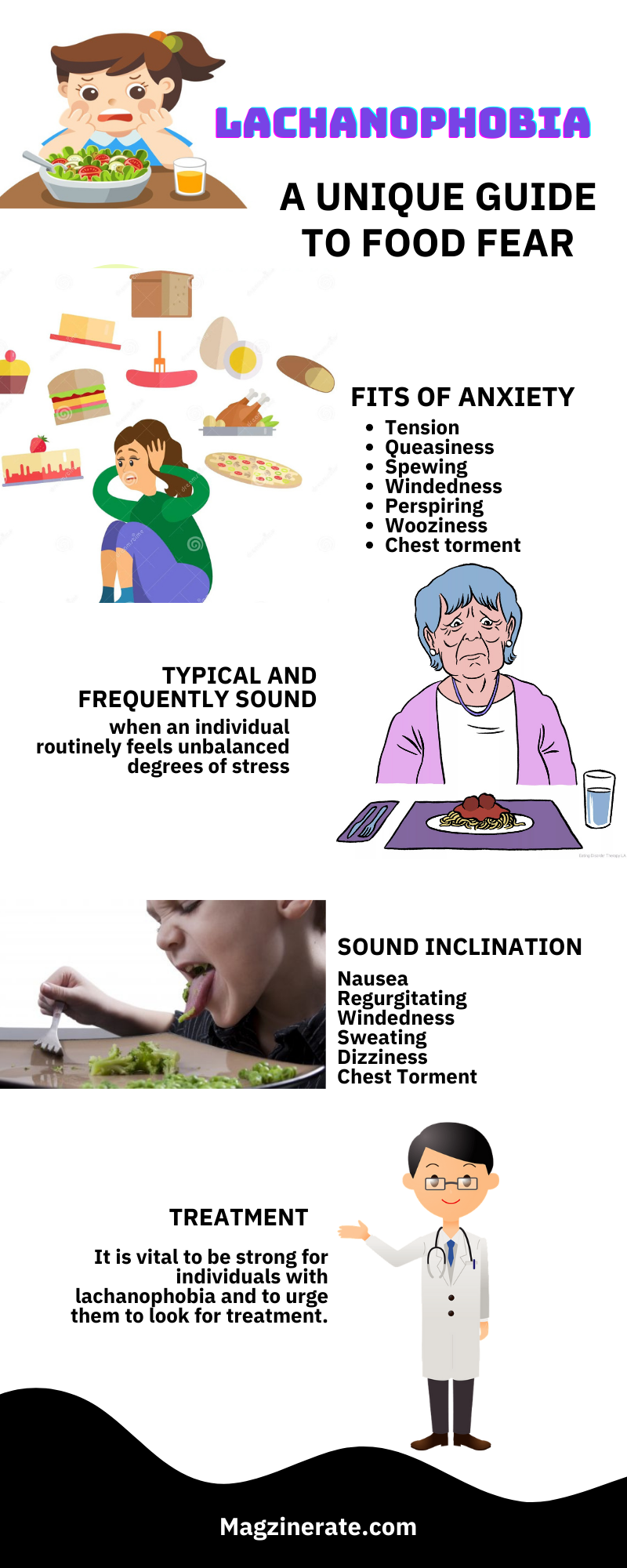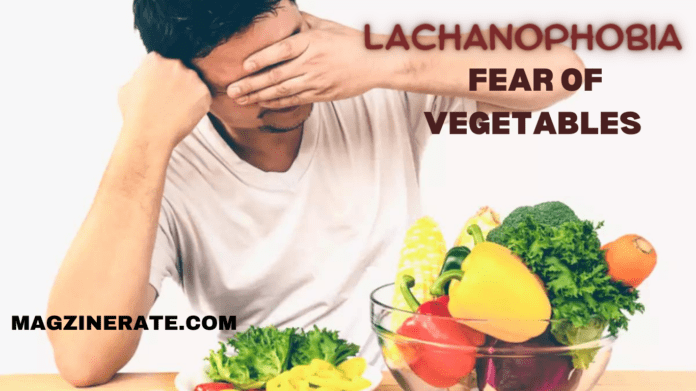Presentation is Lachanophobia
Lachanophobia is an unreasonable feeling of dread toward vegetables. It is a sort of unambiguous fear, a steady and excessive feeling of dread toward a particular article or circumstance. Individuals with Lachanophobia may encounter a scope of side effects when they see, smell, or even ponder vegetables, including.

Fits Of Anxiety
- Tension
- Queasiness
- Spewing
- Windedness
- Perspiring
- Wooziness
- Chest torment
Lachanophobia can be an extremely incapacitating condition, as it can make it hard for individuals to have a solid eating routine. It can likewise prompt social separation and uneasiness, as individuals might avoid circumstances where they may be presented with vegetables.
Fits Of Anxiety
A fit of anxiety is an unexpected episode of extreme trepidation that triggers serious, actual responses when there is no genuine risk or clear reason. Fits of anxiety can be very alarming. They can come on out of nowhere and all of a sudden. Fits of anxiety can endure anywhere from a couple of moments to a few hours.
Nervousness Is A Typical And Frequently Sound Inclination
Nonetheless, when an individual routinely feels unbalanced degrees of stress, apprehension, or disquiet, these sentiments can impede day-to-day existence. Uneasiness issues are the most well-known emotional well-being problems in the US, influencing 40 million grown-ups in the country consistently.
Nausea
Queasiness is a sensation of disquiet in the stomach, frequently joined by a craving to upchuck. It is a typical side effect of a wide range of conditions, including
Regurgitating
Heaving, otherwise called hurling or being debilitated, is the effective discharge of the items in the stomach and upper stomach-related framework through the mouth. A reflex assists the body with disposing of substances that might be unsafe.
Windedness
Windedness, called dyspnea, is the inclination that you can’t get sufficient air in your lungs. It could feel like your chest is tight, you’re panting for air, or you’re working harder to relax.
Sweating
Perspiring is the most common way of setting liquid free from the perspiration organs onto the outer layer of the skin. Sweat is a vapid, scentless fluid that contains water, salt, and different electrolytes. At the point when sweat vanishes from the skin, it assists with chilling the body off.
Dizziness
Dazedness is a term used to depict a scope of sensations, like an inclination that is weak, woozy, powerless, or flimsy. It is quite possibly one of the most well-known reasons grown-ups visit their PCPs.
Chest Torment
Chest torment is a typical side effect that various circumstances, both serious and non-serious, can bring about. It is essential to take note that chest torment can be an indication of respiratory failure, so it is in every case best to decide in favor of watchfulness and look for clinical consideration, assuming that you experience chest torment, particularly assuming that it is new or unexplained.
Conclusion
Keywords: Lachanophobia, vegetable fear, apprehension about vegetables, side effects, causes, impacts, treatment.
Extra notes
Lachanophobia can be a serious fear. However, it is treatable. If you assume you or somebody you know might have Lachanophobia, looking for proficient help is significant.
There are various things that individuals with Lachanophobia can do to deal with their fear, for example, keeping away from vegetables, eating modest quantities of vegetables, or utilizing survival strategies like profound breathing or unwinding methods.
It is vital to be strong for individuals with Lachanophobia and to urge them to look for treatment.
FAQs:
Q1: What is Lachanophobia?
Ans: Lachanophobia is a nonsensical feeling of dread toward vegetables. Individuals who experience the ill effects of this fear might encounter outrageous nervousness or uneasiness when within sight of vegetables or even at the prospect of eating them.
Q2: What causes Lachanophobia?
Ans: The specific reason for Lachanophobia isn’t certainly known. It may result from past bad encounters, social variables, or mental elements. It might sometimes be connected to other food-related fears or dietary issues.
Q3: How normal is Lachanophobia?
Ans: Lachanophobia is somewhat interesting, contrasted with different fears. It’s not quite as generally analyzed as additional broad feelings of trepidation like arachnophobia (anxiety toward insects) or claustrophobia (apprehension about bound spaces).
Q4: What are the side effects of Lachanophobia?
Ans: Side effects might incorporate nervousness, fits of anxiety, perspiring, fast heartbeats, queasiness, and evasion ways of behaving when confronted with vegetables. People experiencing Lachanophobia may take extensive measures to steer clear of situations in which they could encounter vegetables.
Q5: Will Lachanophobia be dealt with?
Ans: Indeed, Lachanophobia can be dealt with. Treatment regularly includes treatment, like mental and social treatment (CBT), openness treatment, and unwinding strategies. These techniques assist individuals in slowly going up against their trepidation and figuring out how to deal with their nervousness.
Also, read our related articles for more information. Click Here.


